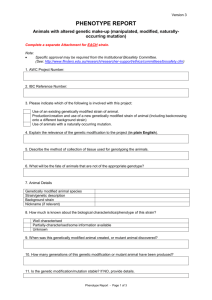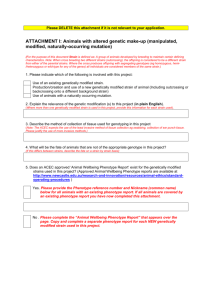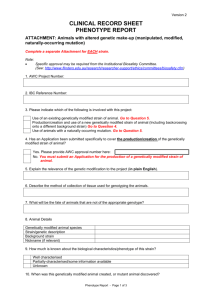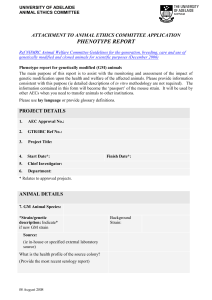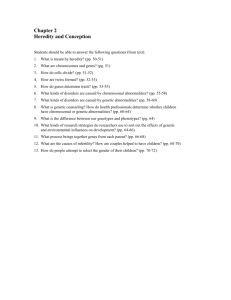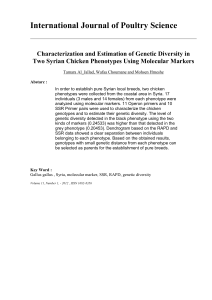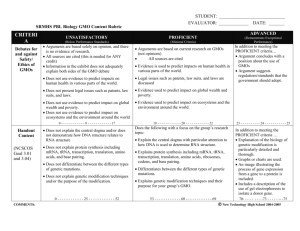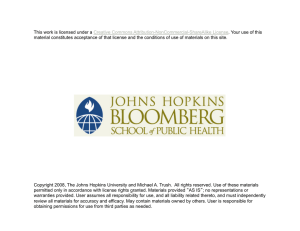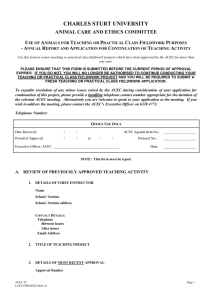APPEN DIX 3 - University of Newcastle
advertisement
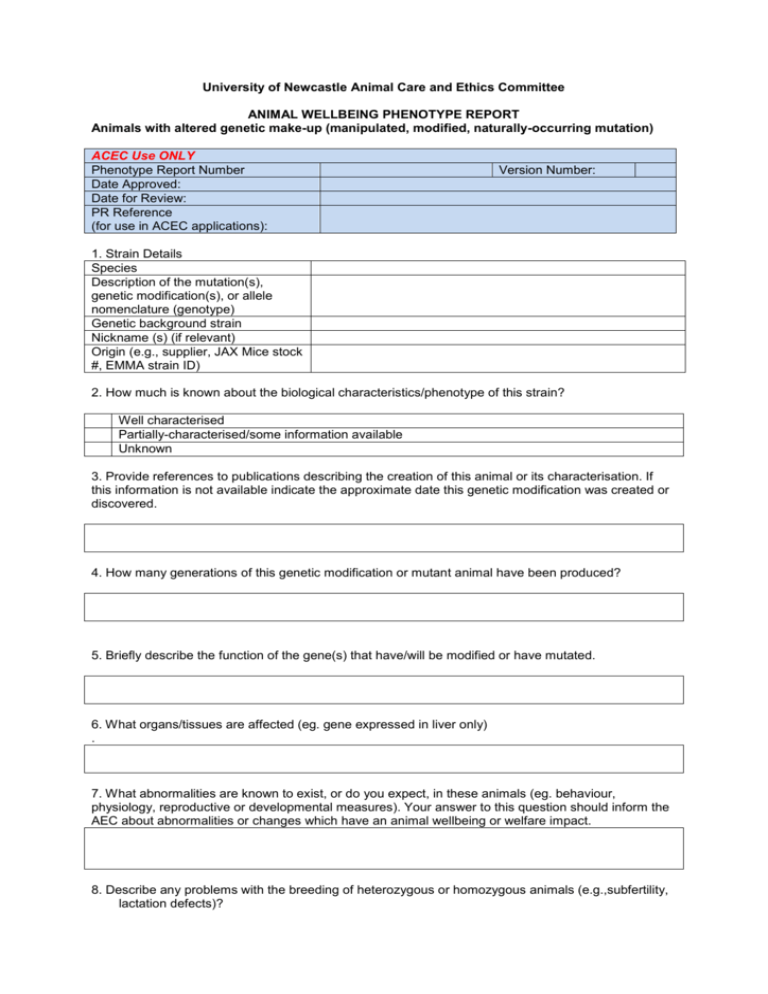
University of Newcastle Animal Care and Ethics Committee ANIMAL WELLBEING PHENOTYPE REPORT Animals with altered genetic make-up (manipulated, modified, naturally-occurring mutation) ACEC Use ONLY Phenotype Report Number Date Approved: Date for Review: PR Reference (for use in ACEC applications): Version Number: 1. Strain Details Species Description of the mutation(s), genetic modification(s), or allele nomenclature (genotype) Genetic background strain Nickname (s) (if relevant) Origin (e.g., supplier, JAX Mice stock #, EMMA strain ID) 2. How much is known about the biological characteristics/phenotype of this strain? Well characterised Partially-characterised/some information available Unknown 3. Provide references to publications describing the creation of this animal or its characterisation. If this information is not available indicate the approximate date this genetic modification was created or discovered. 4. How many generations of this genetic modification or mutant animal have been produced? 5. Briefly describe the function of the gene(s) that have/will be modified or have mutated. 6. What organs/tissues are affected (eg. gene expressed in liver only) . 7. What abnormalities are known to exist, or do you expect, in these animals (eg. behaviour, physiology, reproductive or developmental measures). Your answer to this question should inform the AEC about abnormalities or changes which have an animal wellbeing or welfare impact. 8. Describe any problems with the breeding of heterozygous or homozygous animals (e.g.,subfertility, lactation defects)? 9. Describe any exceptional housing requirements (e.g., IVCs or isolators, bedding, medicated feed or water)? 10. Describe any special husbandry or care procedures required to minimise adverse effects of the genetic modification? 11. Does this animal require a specific monitoring checklist for known animal wellbeing effects? Yes. Attach the specific monitoring checklist to this attachment. No. Ensure that a standard general health monitoring checklist is included with your ACEC application so that unexpected animal wellbeing impacts are identified, recorded and appropriate action taken.
